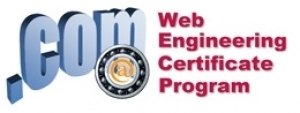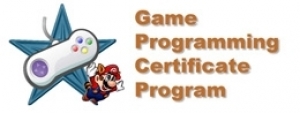
FACULTY OF ENGINEERING
Department of Computer Engineering
IE 252 | Course Introduction and Application Information
| Course Name |
Optimization II
|
|
Code
|
Semester
|
Theory
(hour/week) |
Application/Lab
(hour/week) |
Local Credits
|
ECTS
|
|
IE 252
|
Fall/Spring
|
2
|
2
|
3
|
6
|
| Prerequisites |
|
|||||||
| Course Language |
English
|
|||||||
| Course Type |
Service Course
|
|||||||
| Course Level |
First Cycle
|
|||||||
| Mode of Delivery | - | |||||||
| Teaching Methods and Techniques of the Course | Group WorkProblem SolvingQ&AApplication: Experiment / Laboratory / Workshop | |||||||
| Course Coordinator | ||||||||
| Course Lecturer(s) | ||||||||
| Assistant(s) | ||||||||
| Course Objectives | This course is the second part of a three-term sequence, aims to give students a good foundation in the mathematics of Operations Research and introductory knowledge in modeling and solving the transportation, assignment, network and integer optimization problems arisen in such diverse areas as manufacturing, transportation, construction, telecommunications, financial planning, health care, the military, public services etc. |
| Learning Outcomes |
The students who succeeded in this course;
|
| Course Description | The main subjects of the course are the construction and analysis of the mathematical models of transportation, assignment, network and integer optimization problems and their specific solution methods. |
|
|
Core Courses | |
| Major Area Courses | ||
| Supportive Courses | ||
| Media and Management Skills Courses | ||
| Transferable Skill Courses |
WEEKLY SUBJECTS AND RELATED PREPARATION STUDIES
| Week | Subjects | Related Preparation |
| 1 | Transportation, Assignment and Transshipment Problems | Chapter 9 |
| 2 | Transportation, Assignment and Transshipment Problems | Chapter 9 |
| 3 | Transportation, Assignment and Transshipment Problems | Chapter 9 |
| 4 | Network optimization models | Chapter 10 |
| 5 | Network optimization models | Chapter 10 |
| 6 | Network optimization models | Chapter 10 |
| 7 | Network optimization models | Chapter 10 |
| 8 | Integer Programming | Chapter 12 |
| 9 | Integer Programming | Chapter 12 |
| 10 | Integer Programming | Chapter 12 |
| 11 | Integer Programming | Chapter 12 |
| 12 | Integer Programming | Chapter 12 |
| 13 | Integer Programming | Chapter 12 |
| 14 | Integer Programming | Chapter 12 |
| 15 | Review of the Semester | |
| 16 | Review of the Semester |
| Course Notes/Textbooks | Introduction to Operations Research, Frederick S. Hillier, Gerald J. Lieberman, Ninth Edition, 2010 Mc GrawHill, ISBN: 9780071267670. |
| Suggested Readings/Materials | Operations Research: Applications and Algorithms, Wayne L. Winston, 4th Ed., Duxbury Press, ISBN 0534209718. Operations Research. An Introduction, Hamdy A. Taha, Sixth Edition, 1997, PrenticeHall, ISBN 0132811723. |
EVALUATION SYSTEM
| Semester Activities | Number | Weigthing |
| Participation | ||
| Laboratory / Application |
1
|
10
|
| Field Work | ||
| Quizzes / Studio Critiques |
4
|
20
|
| Portfolio | ||
| Homework / Assignments |
1
|
10
|
| Presentation / Jury | ||
| Project | ||
| Seminar / Workshop | ||
| Oral Exams | ||
| Midterm |
1
|
25
|
| Final Exam |
1
|
35
|
| Total |
| Weighting of Semester Activities on the Final Grade |
4
|
65
|
| Weighting of End-of-Semester Activities on the Final Grade |
1
|
35
|
| Total |
ECTS / WORKLOAD TABLE
| Semester Activities | Number | Duration (Hours) | Workload |
|---|---|---|---|
| Theoretical Course Hours (Including exam week: 16 x total hours) |
16
|
2
|
32
|
| Laboratory / Application Hours (Including exam week: '.16.' x total hours) |
16
|
2
|
32
|
| Study Hours Out of Class |
14
|
3
|
42
|
| Field Work |
0
|
||
| Quizzes / Studio Critiques |
4
|
12
|
48
|
| Portfolio |
0
|
||
| Homework / Assignments |
1
|
16
|
16
|
| Presentation / Jury |
0
|
||
| Project |
0
|
||
| Seminar / Workshop |
0
|
||
| Oral Exam |
0
|
||
| Midterms |
1
|
20
|
20
|
| Final Exam |
1
|
26
|
26
|
| Total |
216
|
COURSE LEARNING OUTCOMES AND PROGRAM QUALIFICATIONS RELATIONSHIP
|
#
|
Program Competencies/Outcomes |
* Contribution Level
|
||||
|
1
|
2
|
3
|
4
|
5
|
||
| 1 | To have adequate knowledge in Mathematics, Science and Computer Engineering; to be able to use theoretical and applied information in these areas on complex engineering problems. |
|||||
| 2 | To be able to identify, define, formulate, and solve complex Computer Engineering problems; to be able to select and apply proper analysis and modeling methods for this purpose. |
|||||
| 3 | To be able to design a complex system, process, device or product under realistic constraints and conditions, in such a way as to meet the requirements; to be able to apply modern design methods for this purpose. |
|||||
| 4 | To be able to devise, select, and use modern techniques and tools needed for analysis and solution of complex problems in Computer Engineering applications; to be able to use information technologies effectively. |
|||||
| 5 | To be able to design and conduct experiments, gather data, analyze and interpret results for investigating complex engineering problems or Computer Engineering research topics. |
|||||
| 6 | To be able to work efficiently in Computer Engineering disciplinary and multi-disciplinary teams; to be able to work individually. |
|||||
| 7 | To be able to communicate effectively in Turkish, both orally and in writing; to be able to author and comprehend written reports, to be able to prepare design and implementation reports, to present effectively, to be able to give and receive clear and comprehensible instructions. |
|||||
| 8 | To have knowledge about global and social impact of Computer Engineering practices on health, environment, and safety; to have knowledge about contemporary issues as they pertain to engineering; to be aware of the legal ramifications of Computer Engineering solutions. |
|||||
| 9 | To be aware of ethical behavior, professional and ethical responsibility; to have knowledge about standards utilized in engineering applications. |
|||||
| 10 | To have knowledge about industrial practices such as project management, risk management, and change management; to have awareness of entrepreneurship and innovation; to have knowledge about sustainable development. |
|||||
| 11 | To be able to collect data in the area of Computer Engineering, and to be able to communicate with colleagues in a foreign language. ("European Language Portfolio Global Scale", Level B1) |
|||||
| 12 | To be able to speak a second foreign language at a medium level of fluency efficiently. |
|||||
| 13 | To recognize the need for lifelong learning; to be able to access information, to be able to stay current with developments in science and technology; to be able to relate the knowledge accumulated throughout the human history to Computer Engineering. |
|||||
*1 Lowest, 2 Low, 3 Average, 4 High, 5 Highest
NEWS |ALL NEWS

Home kitchens will be like ‘restaurant kitchens’
Esra-Melis Sarıhan sisters, graduates of Izmir University of Economics (IUE), developed an application called ‘Yedir’ that will bring home cooks and food

She became one of the 10 most successful women in the Middle East
Melda Akın, a graduate of Department of Computer Engineering, Izmir University of Economics (IUE), was named one of the 10 most successful

Watch out for pandemic scams
Fake job postings that promise people to work from home have been the latest tactic of scammers, who are looking for ways






